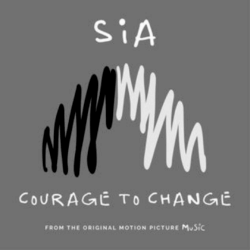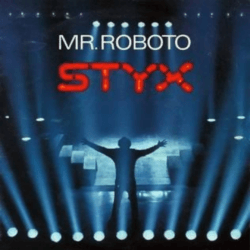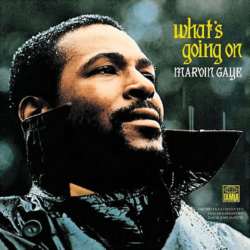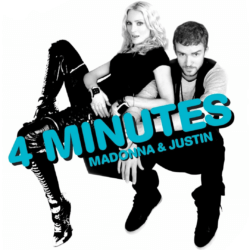February 10, 2022

The Courage to Change: A Soundtrack
In the 70s, the Hamilton Brothers sang “Music Makes the World Go Round.” Nowhere is this truer than with Steve Klasko’s first commentary for the 4sight Health community. “The Courage to Change: A Soundtrack” uses popular music to prompt progressive action on healthcare’s thorniest issues: decentralizing care delivery; perverse economics; human-machine collaboration; health disparities.
Steve reminds us that healthcare is a business that requires soul (and soul music) to connect deeply and honestly with consumers. With wit and wisdom, he nudges us to imagine better healthcare (think John Lennon) and then make it happen (think Gandhi). Welcome aboard Steve! What a privilege it is for us to share your insights and evolving soundtrack with the 4sight Health audience. – David Johnson
If there’s anything I’ve learned in 40 years as a dean, CEO and president, it’s that we each need our own toolbox for an optimistic future. I recently retired as president of Thomas Jefferson University and CEO of Jefferson Health to pursue my passion for using technology to reduce costs and address health disparities. As I step away from a career as dean of two medical schools, CEO of three academic health systems and president of a university, these are my reflections on that toolbox for optimism. My message to you: Make sure your toolbox is full.
My toolbox has always included music.
I’ve been a DJ for 50 years and a doctor for 40 years, so every Friday during the pandemic, I sent a playlist to our employees to remind them that art and music and humanity are still alive and well, despite the tough times each of us was experiencing. What I said repeatedly to my employees: We should listen to “The Message in the Music” (the O’Jays, lyrics by Philly’s own Kenny Gamble and Leon Huff). When I left Thomas Jefferson University and Jefferson Health, I gave an interview to the Philadelphia Business Journal based on songs in my toolbox, that I want to share with my colleagues and friends in the industry.
Courage to Change
Let’s start with the song “Courage to Change,” an anthem of empowerment by Sia … and a pretty cool tune.
As the saying goes, when you’re in a ditch, the first thing you must do is stop digging. We are doing a lot of ditch-digging in healthcare and it is hurting the industry, the country and our patients. It’s time to stop digging after the in-patient, bed-census and fee-for-service revenue in a sick-care model, and time to provide what I call health assurance to people throughout their lives.
 So my first “message in the music” to CEOs is the courage to change.
So my first “message in the music” to CEOs is the courage to change.
Have I the courage to change today?
You’re not alone in all this
You’re not alone, I promise
Standing together we can do anything
Be clear about your old math, pre-pandemic, and your new math in the digital, mobile world we all now live in. In healthcare, the pandemic taught us that hospitals are absolutely essential, especially their unique ability to handle people who need advanced care for severe illness. The pandemic also taught us that people need healthcare at any address. The vast majority of people who suffered from COVID-19 didn’t come to a hospital – we helped them at home. And at the same time, people with chronic illnesses like diabetes and heart failure needed even more help at home.
“Healthcare at any address” isn’t telehealth, or transfusion at home, or any one product. It’s a philosophy of assuring health. It’s seeing people as people – not patients. It is all about a new and revolutionary dashboard for prevention, from pre-disease markers to online mental health help, to wearable warnings, to the computer as concierge models that are emerging for chronic illness. If you’re a CEO in healthcare, you need to keep an eye on both your old math and your new math, and have the courage to embrace new models of connected care.
Robots Are Your Friends
 “Mr. Roboto,” by Styx. This song always spurs a laugh.
“Mr. Roboto,” by Styx. This song always spurs a laugh.
Domo arigato, Mr. Roboto
… Thank you very much, Mr. Roboto
For doing the jobs nobody wants to
And thank you very much, Mr. Roboto
For helping me escape to where I needed to
I have been telling people we need a Center for Intersentient Education. It took us 20 years to get doctors and nurses to work together as equals in teams, and it will take another 10 years train clinicians and robots to act as partners.
I fully understand the skepticism. For too long, we’ve all gone to tech conferences and walked away with hundreds of business cards from people who have a new bright idea to revolutionize hospital billing, infections or TV channel selection.
But the Gartner Hype Cycle remains true: We overestimate technology in the short run, and underestimate it in the long run. Nurses, physicians, indeed the entire clinical team, need to let robots memorize and document, while humans focus on that crucial question from a patient, “What does this mean?” We provide meaning.
As Jack Ma said at the World Economic Forum several years ago, “when we invented cars, we didn’t teach our children to run faster. When we invented planes, we didn’t teach our children to fly.” It’s time to do what we do best as humans, and let robots sift through the data.
Bring Some Lovin’ Back Into Healthcare
This is where my passion is headed for the next phase of my career. The two existential threats to our society are climate change and health disparities. I’ve been arguing that we need a Greta Thunberg in healthcare to ring the bell and say enough with the “blah blah blah health reform blah blah blah.”
 This is not new. Go back to 1971, and Marvin Gaye was singing “What’s Going On?”
This is not new. Go back to 1971, and Marvin Gaye was singing “What’s Going On?”
Mother, mother. There’s too many of you crying.
Brother, brother, brother.
There’s far too many of you dying.
You know we’ve got to find a way.
To bring some lovin’ here today, yeah
We’ve got to bring some lovin’ to cities like Philadelphia. As I see the explosion of digital technology in healthcare delivery, my call is this: Use that “value” you’re creating and put it toward closing the gap. We must ensure that everyone has broadband access, for education, healthcare, and jobs. We must ensure that digital medicine embraces all people. We cannot allow the digital transformation that was accelerated by the pandemic to just make the wealthy better educated, richer, and healthier.
As academic health centers, we need to work together to be true anchors – to reduce the gap in life expectancies, to ensure that everyone has the opportunity, as Thomas Jefferson said, to pursue happiness.
Your 4 Minutes to Save the World
My future? I want to see responsible innovation. I want to see patients and students gain a transformed experience that will allow them to thrive. And I want to see the money being made in digital healthcare used to close the gaps of health disparities. Those are my goals. I have no job lined up, but I think I’ll be able to pursue that vision and keep finding the message in the music wherever I go.
 Time is waiting
Time is waiting
We only got four minutes
To save the world
No hesitating
I’ll leave you with “4 Minutes” by Madonna and Justin Timberlake. What would you do if you had four minutes to save the world? Think about your answer … and even if it takes longer than four minutes, get on it!
Author’s Note: The Philadelphia Business Journal interviewed me on this topic and published the interview on December 21, 2021.





